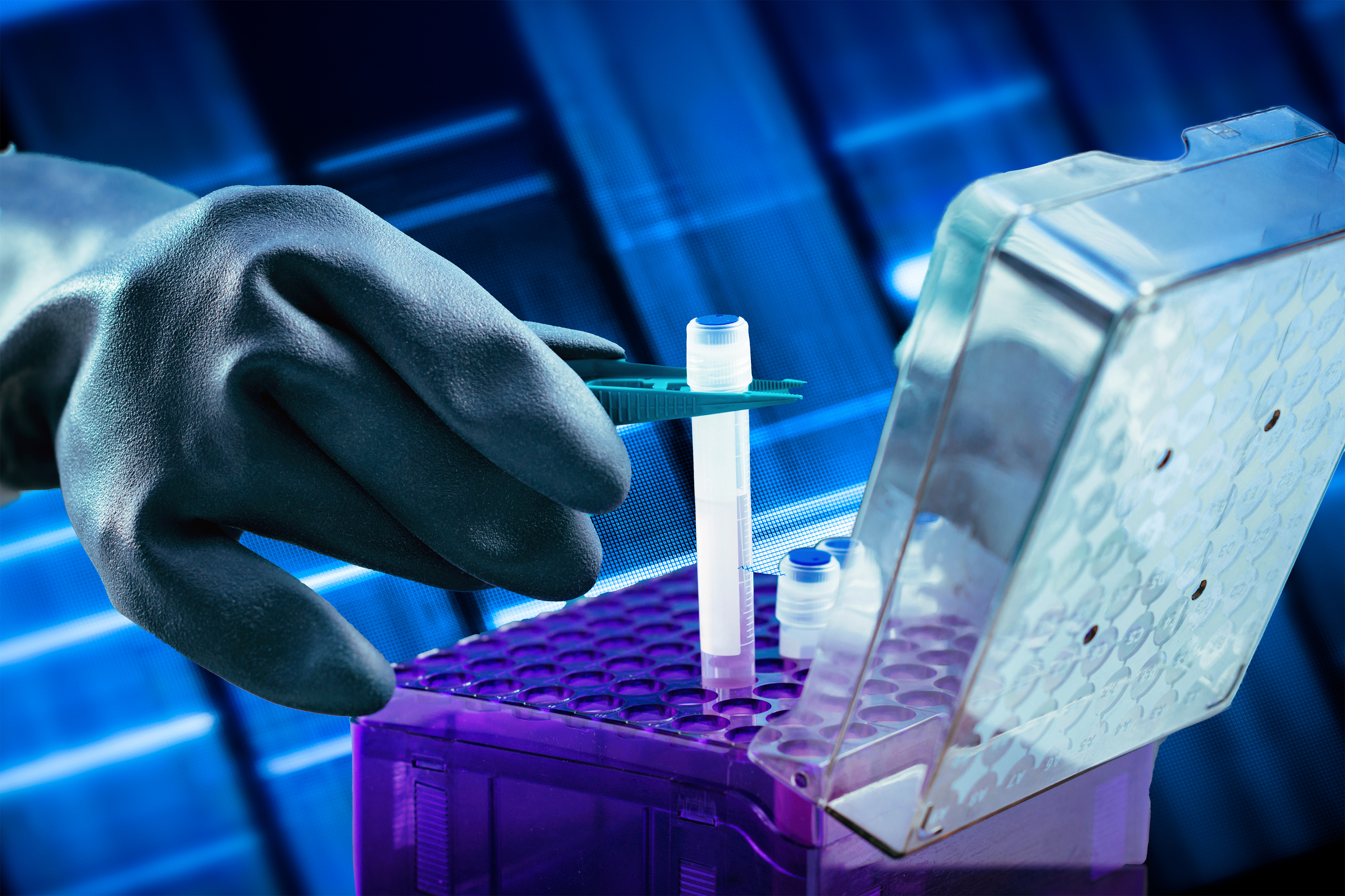Can This MIT Spinout Revolutionize Biomolecule Storage Beyond the Freezer?

Published: 2025-09-12 04:00:00 | Category: Uncategorized
Cache DNA is revolutionising the life sciences industry by developing a technology that allows DNA and other biomolecules to be stored at room temperature, eliminating the reliance on cold storage systems. This innovation aims to improve access to genetic resources globally, thereby enhancing precision medicine and expanding research capabilities.
Last updated: 15 October 2023 (BST)
Key Takeaways
- Cache DNA offers a solution for room-temperature storage of biomolecules, challenging the traditional cold chain.
- The technology aims to increase accessibility to genetic samples worldwide, particularly in remote and underserved regions.
- Cache DNA's innovations can potentially improve precision medicine by preserving vital patient samples without refrigeration.
- The company has received support from the National Science Foundation to expand its preservation technologies.
- Utilising DNA for data storage presents a new frontier in both biology and information technology.
The Cold Chain: A Lifeline with Limitations
For decades, the cold chain has been an essential component of the life sciences sector. It ensures that biological samples and pharmaceuticals remain viable during storage and transportation. However, the reliance on freezers and dry ice presents significant challenges. A single power outage, equipment failure, or shipping delay can compromise irreplaceable samples, delaying critical treatments and research.
During the Covid-19 pandemic, the fragility of the cold chain was starkly illustrated when vaccines were discarded due to thawing during transport. This highlighted an urgent need for innovative solutions that can preserve biological integrity without the stringent requirements of refrigeration.
Cache DNA: Breaking Free from Cold Storage
Cache DNA, founded by James Banal and Mark Bathe at MIT, is poised to disrupt the longstanding reliance on cold storage. Their pioneering technology allows for the preservation of DNA at room temperature, which could fundamentally change how biological samples are stored and transported.
“We want to challenge the paradigm,” says Banal. “With the cost of DNA sequencing dropping significantly, the focus has shifted to how we store and transport these invaluable samples.”
The Science Behind Room-Temperature Storage
The innovation stems from a collaborative effort at MIT, where Banal and Bathe, alongside Professor Jeremiah Johnson, explored novel polymer materials that could encapsulate DNA. Their work involved creating a polymer that acts as a protective barrier, preserving DNA integrity without the need for cold storage.
These polymers are designed to be hydrophobic, preventing moisture and enzymes from degrading the DNA. This technology is akin to vacuum-sealing at a molecular level, offering a robust solution for sample preservation.
Real-World Applications and Implications
The implications of Cache DNA's technology are vast. The ability to store DNA at room temperature could democratise access to genetic research, especially for populations in remote or developing areas where refrigeration is unreliable or unavailable. Banal envisions a world where every individual could contribute to a global biobank, leading to a wealth of genetic data that could drive medical breakthroughs.
“Imagine if every human on Earth could contribute to a global biobank, not just those living near million-dollar freezer facilities,” he adds. This vision points to a future where health insights are drawn from a more diverse genetic pool, potentially leading to cures for diseases that remain elusive today.
Field Testing and Feedback
Since rolling out their alpha DNA preservation kits, Cache DNA has garnered interest from researchers worldwide. The feedback has been overwhelmingly positive, with various applications emerging. Some researchers have utilised the kits for field sample collection, where cold shipping is impractical, while others have explored long-term archival storage solutions.
The universality of the storage problem has become a driving force for Cache DNA, guiding their mission to provide reliable, refrigeration-free solutions for sample preservation.
A New Era for Precision Health
Cache DNA's preservation technology not only addresses the cold chain's limitations but also opens new avenues for precision health. A recent grant from the National Science Foundation will allow the company to expand its capabilities to include other biomolecules, such as RNA and proteins, broadening the potential applications of their technology.
“This innovation helps eliminate the cold chain and unlocks millions of genetic samples globally,” Bathe states. “It could enable the equivalent of a ‘Google Books’ for nucleic acids stored at room temperature.”
Overcoming Barriers to Global Health
One of the most pressing barriers to global health is the accessibility of genetic resources. Cache DNA's technology aims to bridge this gap, allowing researchers and healthcare providers in underserved regions to participate in global studies and contribute to advancements in medicine.
“Freezers have dictated where science could happen,” says Banal. “By removing that constraint, we can explore possibilities previously thought impossible.” This sentiment encapsulates the transformative potential of their work, which could empower millions of individuals to take part in health research and contribute to medical advancements.
Conclusion: The Future of Biomolecule Preservation
Cache DNA is at the forefront of a significant shift in the life sciences industry. By breaking the reliance on cold storage, the company is paving the way for a more inclusive and accessible future in health research. The implications of their technology could lead to groundbreaking discoveries and treatments, making it a vital advancement in precision medicine.
As the world continues to grapple with health challenges, innovations like those from Cache DNA could make a substantial difference in how we approach medical research and patient care. By ensuring that every biological sample has the potential to survive the journey from collection to analysis, we may unlock the cures we have yet to discover.
As we look to the future, what possibilities might arise when every individual can contribute to the collective understanding of health and disease? The answer lies in the samples that survive the journey, regardless of location or circumstances. #Biotechnology #PrecisionMedicine #GlobalHealth
FAQs
What is Cache DNA's primary innovation?
Cache DNA's primary innovation is the development of a technology that allows for the preservation of DNA and other biomolecules at room temperature, eliminating the need for cold storage.
How does Cache DNA's technology work?
The technology uses specially designed polymers to encapsulate DNA, forming a protective barrier that prevents moisture and enzymes from degrading the samples, effectively preserving their integrity.
What are the potential applications of this technology?
The technology could be used in various fields, including precision medicine, rare disease research, pandemic preparedness, and for collecting samples in remote areas where refrigeration is impractical.
How does this technology impact global health?
By making sample storage accessible without the need for refrigeration, Cache DNA's technology can empower global participation in health research, potentially leading to new insights and treatments that benefit underserved populations.
What are the future plans for Cache DNA?
Cache DNA plans to expand its preservation technology to include other biomolecules like RNA and proteins, which could further enhance its applications in health and disease research.



